 Professor Rebecca Puhl was featured in a podcast on size discrimination. Listen to the podcast here.
Professor Rebecca Puhl was featured in a podcast on size discrimination. Listen to the podcast here.
Faculty
Laura Mauldin’s op-ed essay published in The American Prospect
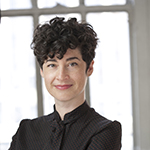 Associate Professor Laura Mauldin published an op-ed essay in The American Prospect “The care crisis isn’t what you think”. Read the essay here.
Associate Professor Laura Mauldin published an op-ed essay in The American Prospect “The care crisis isn’t what you think”. Read the essay here.
Ronald Rohner featured in UConn Today
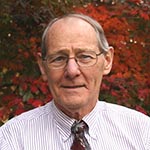 Emeritus Professor Ron Rohner was featured in UConn Today for an article on parental rejection across cultures. Read the article here.
Emeritus Professor Ron Rohner was featured in UConn Today for an article on parental rejection across cultures. Read the article here.
Annamaria Csizmadia, HDFS Faculty Spotlight, January 2022
Associate Professor
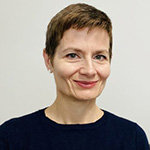 Annamaria Csizmadia is a scholar-teacher of cultural diversity. She has spent the past two decades studying how culturally relevant and group-specific factors shape developmental processes among monoracial and Multiracial (including immigrant) youth of color. She investigates how youth of color develop a positive ethnic-racial identity and the role that families play in helping youth navigate life in a racialized society where access to resources and opportunities is determined based on one’s race (as well as class and gender). She has a special interest in Multiracial youth development (in part because she is the proud mother of a wonderfully brilliant Multiracial daughter).
Annamaria Csizmadia is a scholar-teacher of cultural diversity. She has spent the past two decades studying how culturally relevant and group-specific factors shape developmental processes among monoracial and Multiracial (including immigrant) youth of color. She investigates how youth of color develop a positive ethnic-racial identity and the role that families play in helping youth navigate life in a racialized society where access to resources and opportunities is determined based on one’s race (as well as class and gender). She has a special interest in Multiracial youth development (in part because she is the proud mother of a wonderfully brilliant Multiracial daughter).
Her work is Informed by cultural ecological, critical race, and intersectional theories. In this research she highlights the important role of family ethnic-racial socialization, such as how parents teach children pride in their race, ethnicity, and culture, and help them cope with bias and discrimination. Her research demonstrates that these socialization practices along with other culture-specific parenting behaviors contribute to social-emotional adjustment among youth of color in important ways. She also has found that how parents identify their child’s race is a highly salient form of ethnic-racial socialization in families of Multiracial youth. Her theoretical and empirical work emphasizes the dynamic interaction of family socialization, Multiracial youth’s social cognition, and their social environment that shapes Multiracial youth development.
Alongside family practices and youth’s identity-related social cognition, Annamaria seeks to understand how influences outside the family shape development in monoracial and Multiracial youth. Some of her most recent work focused on learning about racial microaggressions. In 2019-2020, as part of the UConn Racial Microaggression Study research team, she surveyed over 1,200 UConn students of color to learn about their experiences with racial microaggressions in and outside the classroom. The team found that students who reported more interpersonal experiences that communicated to them invalidation, insult, or derogatory messages due to their racial group also reported lower levels of psychological well-being and more discrimination-related trauma symptoms. The team presented their research to the University administration and disseminated it through campus news and the Hartford Courant to inform policy change and the community.
Annamaria began developing a keen interest in cultural diversity when she started taking Russian and German languages as an elementary-school student in Hungary where she was born and raised. Speaking other languages besides her native tongue exposed her to all kinds of cross-cultural experiences. She learned about life in different cultural settings from pen pals from Eastern and Western Europe (prior to the fall of the Iron Curtain!), summer camps that hosted students from Austria to Korea, and school trips abroad. Her informal learning through travel and cross-cultural exchange in time shifted to formalized learning about linguistics, culture, literature, and, in the end, diversity issues in human development. She did not only traverse cultures and national borders, but eventually also disciplinary boundaries. After studying “Germanistik” and “Anglistik (German for German and English literature and linguistics) at the University of Trier, followed by a master’s degree in German Literature, in 2008 she completed her Ph.D. in Human Development and Family Studies at the University of Missouri.
In addition to her research, Annamaria feels privileged to learn about cultural diversity through daily interactions with her students at the UConn Stamford campus where she teaches courses on diversity issues, intergroup relations, research methods, and other HDFS topics. As a scholar-teacher, she regularly engages students in her research. Over the years, she has published numerous journal articles, book chapters, and encyclopedia entries with her students and taken them to national conferences to present their work.
For her teaching excellence and commitment to student success, Annamaria has received several honors and awards, including the 2013-2014 Honors Mentor of the Year Award, 2019-2020 Center for Excellence in Teaching and Learning Teaching Fellow Award, and the 2020 College of Liberal Arts and Sciences Faculty Excellence in Teaching Award. Although these recognitions mean a lot to Annamaria, she is most proud of her students who secured competitive funding to do their research under her mentorship and went on to pursue graduate training at UConn, Harvard, and many other prestigious universities. As a first-generation college student and immigrant, herself, providing access to opportunities and resources for her students, many of whom are also first-generation college students and of immigrant backgrounds, is the most fulfilling part of her job!
Annamaria also serves her professional community as an editorial board member of the Journal of Marriage and Family, Journal of Family Psychology, and Journal of Research on Adolescence, and as a peer reviewer for two dozen journals, ad hoc conferences, and funding agencies. As member of the board, advisory council, and now Diversity, Equity, and Inclusion committee, she has been supporting the work of the Stamford Public Education Foundation, a local educational non-profit since 2008.
Outside work, Annamaria loves traveling, reading, running long distances, Barre and HITT workouts, doing puzzles, home renovation, gardening, and spending time with her daughter, family, and friends. She lives in Stamford, CT where she feels right at home given that over 35% of the city’s population is foreign born.
Rebecca Puhl featured in multiple news outlets
 Professor Rebecca Puhl was featured in multiple news outlets for her work on weight discrimination and stigma:
Professor Rebecca Puhl was featured in multiple news outlets for her work on weight discrimination and stigma:
Strong Support for Laws Against Weight Discrimination, Bullying in Medscape (read the article here); Women Feel More Stigma from ‘Spare Tire’ Around Middle Than Men, US News (read the article here); The Public Welcomes Policies Prohibiting Weight Discrimination, Clinical Advisor (read the article here); The Pandemic is Changing the Way Young People Eat and How They Feel About Their Bodies: 4 Essential Reads, Herald Review (read the article here).
Na Zhang featured in UConn Today
Assistant Professor Na Zhang featured in UConn Today for her work on reducing suicide risk in parentally bereaved youth through strengthening parenting. Read the article here.
Rebecca Puhl testifies at Massachusetts State Hearing
 Professor Rebecca Puhl testified at the Massachusetts State Hearing considering Senate Bill 1127, An Act Prohibiting Body Size Discrimination.
Professor Rebecca Puhl testified at the Massachusetts State Hearing considering Senate Bill 1127, An Act Prohibiting Body Size Discrimination.
Adamsons, Horton, & Russell present at UConn ECE workshop
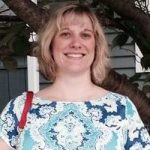

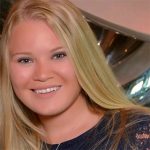
Associate Professor Kari Adamsons, Graduate Student Abbey Horton, and Associate Professor Beth Russell presented at UConn’s annual Early Childhood Experience workshop.
Eva Lefkowitz presented to the (ECE) HDFS 1070 course at WHS
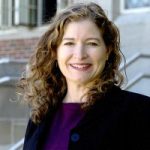 Recently, Professor and Department Head Eva Lefkowitz presented to the Early College Experience (ECE) HDFS 1070 course at Wilton High School, Eva’s own high school (class of 1986!).
Recently, Professor and Department Head Eva Lefkowitz presented to the Early College Experience (ECE) HDFS 1070 course at Wilton High School, Eva’s own high school (class of 1986!).
Terry Berthelot joined United Services, Inc., Board of Directors
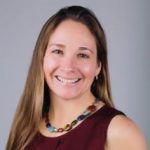 Assistant Professor in Residence Terry Berthelot joined the United Services, Inc., Board of Directors on November 18, 2021. The purpose of the organization is to provide and encourage comprehensive human services, including behavioral health, social, and prevention services for towns in northeast Connecticut.
Assistant Professor in Residence Terry Berthelot joined the United Services, Inc., Board of Directors on November 18, 2021. The purpose of the organization is to provide and encourage comprehensive human services, including behavioral health, social, and prevention services for towns in northeast Connecticut.